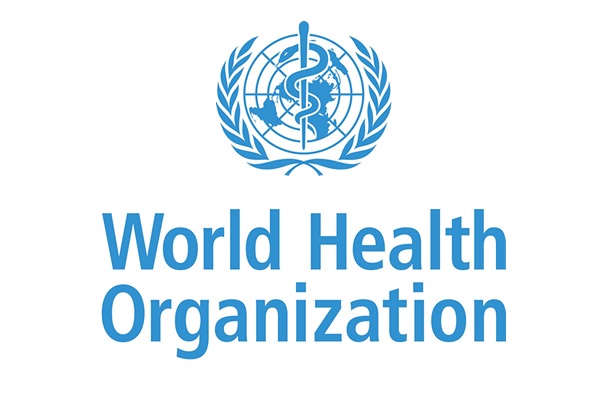
–>
April 7, 2023
Should the U.S. leave the World Health Organization? Yes.
‘); googletag.cmd.push(function () { googletag.display(‘div-gpt-ad-1609268089992-0’); }); }
Is the United States on the verge of ceding its sovereignty to the WHO? No.
There is no question that the World Health Organization (WHO) does more harm than good and the United States should flee its grasp as quickly as possible. The WHO response to COVID-19 proves the organization is not only ineffective, but pushes policies and agendas that are harmful to American patients and our nation’s well-being. For example, while initially assisting the Chinese Communist Party in suppressing details about COVID’s origins and transmissibility, the WHO later promoted China’s unconscionable lockdowns and other violations of human rights as measures other nations should emulate.
As the Association of American Physicians and Surgeons (AAPS) presciently warned over 60 years ago in our March 1955 newsletter: “the World Health Organization… is another United Nations agency… where the American taxpayers pay for most of the activities but have an exceedingly small voice in opposing the socialistic programs offered by the agency.”
‘); googletag.cmd.push(function () { googletag.display(‘div-gpt-ad-1609270365559-0’); }); }
So it is clearly not in the best interest of the U.S. to remain the largest funder of the WHO, “providing between $400 million to $500 million each year,” as reported by the Kaiser Family Foundation.
Adding to the reasons to leave are ongoing efforts to double-down on failed WHO leadership with a proposal to create a new agreement or “treaty” that could hand international regulators more tools aimed at directing nations’ response to future events the WHO deems pandemics. In addition, the WHO continues to consider questionable amendments to existing International Health Regulations (IHR) that aim to expand WHO authority.
Many well-meaning groups that defend warn of dire consequences for medical freedom and national sovereignty. A current U.S. senator even states that President Biden plans to “cede American sovereignty to the WHO without the Senate’s advice and consent.”
These claims absolutely deserve close scrutiny. However, a closer look reveals that the current threat from the WHO is not as severe as is being stated, and is certainly less that the attack on the rights of Americans being perpetrated by our own U.S. states and federal government.
Please consider the following:
- Even with the consent of the Senate, treaties the U.S. enters into cannot legally abrogate the rights of American citizens conferred by the Constitution or intrude on State’s sovereignty to oversee policy within its borders. “[T]he President cannot make any treaties displacing state sovereignty,” and the Constitution does “[not give] Congress the authority to implement a treaty in a way that displaces state sovereignty,” explains Sen. Ted Cruz in a Harvard Law Review analysis of the limits on treaty power. “Nor can treaties violate independent constitutional [rights of individual],” Cruz continues. Numerous Supreme court decisions confirm this conclusion. “[N]o agreement with a foreign nation can confer power… which is free from the restraints of the Constitution,” wrote Chief Justice Brennan in a 1957 ruling. More recently in a 2014 ruling in Bond vs. U.S., the Court stated: “While Congress has the power to create laws that enforce treaties, that power does not extend to the enforcement of laws that would infringe on states’ rights.”
- While the International Health Regulations already bind the U.S. federal government to take certain actions, they do not impose binding pandemic-related restrictions on U.S. states or citizens. The proposed amendments,
 even if enacted, do not change this. The obligations imposed by the regulations on the federal government, generally relate to the federal government maintaining an ability to “detect, assess, report, and respond to public health events.” The regulations also lay out measures governments may impose to manage risks pertaining to international trade and travel. Certainly the U.S. does not need the WHO to manage or regulate these types of activities. And there is a risk that WHO involvement could increase the possibility that some type of digital vaccine passport might be required for international travel, for example. This would be unwise and unethical, of course. That said, neither the regulations or the proposed amendment would allow the WHO to order the United States or any states within our nation to impose any specific type of pandemic measures like lockdowns, masking requirements, or vaccine mandates, within our borders.
even if enacted, do not change this. The obligations imposed by the regulations on the federal government, generally relate to the federal government maintaining an ability to “detect, assess, report, and respond to public health events.” The regulations also lay out measures governments may impose to manage risks pertaining to international trade and travel. Certainly the U.S. does not need the WHO to manage or regulate these types of activities. And there is a risk that WHO involvement could increase the possibility that some type of digital vaccine passport might be required for international travel, for example. This would be unwise and unethical, of course. That said, neither the regulations or the proposed amendment would allow the WHO to order the United States or any states within our nation to impose any specific type of pandemic measures like lockdowns, masking requirements, or vaccine mandates, within our borders. - The proposed new WHO treaty similarly will not, “give the WHO authority over U.S. domestic pandemic policies.” Instead it is focused on forcing countries to “equitably” redistribute knowledge, technology, and other resources with nations the WHO deems to be underserved, reports the Heritage Foundation. Yes, these are harmful DEI policies (“socialistic policies” AAPS warned about in 1955) that are spreading all too quickly across our nation to our peril. To reiterate, no, the U.S. should not sign on to these agreements that would obligate the U.S. to send potentially hundreds of billions of dollars to countries the WHO favors and that likely benefit corporations making pandemic related products like vaccines.
- America’s governors, presidents, and bureaucrats within U.S. Federal agencies like HHS, the FDA, CDC, and NIH, are the individuals who are the proven actual threat to the rights of Americans. Governors have abused emergency powers to impose lockdowns, vaccine mandates, masking policies, and other harmful rules. Governors appoint medical licensing board members who suspend physicians’ ability to practice for daring to question their harmful mandates. Federal agencies, under the orders and oversight of presidents Biden and Trump have pushed questionable COVID-19 treatments and vaccines on the nation with little or conflicting safety and efficacy data. President Biden mandated COVID shots on health care workers, federal employees, employees of large corporations, and members of the military. All these harmful decisions were made, not by the World Health Organization, but by our own leaders right here in the United States. In fact, certain WHO recommendations were even disregarded by our leaders, for example regarding the use of remdesivir. The WHO rejected the drug as unhelpful for hospitalized patients; nonetheless the U.S. Centers for Medicare and Medicaid Services (CMS) continues to reward hospitals with handsome bonuses when they push patients into taking it.
So who has stolen our rights? The WHO or our own leaders? Could it be that focusing on what the WHO is or isn’t doing is distracting Americans from fixing problems within our own borders? Is there any danger in saying that the WHO has more power than it actually does possess? If people are given the impression that the WHO dictates U.S. pandemic restrictions can our governors and federal elected officials try to plausibly deny they are truly the ones who are to blame? The answers may unfortunately be yes. That isn’t to say that the WHO proposals should be brushed aside as meaningless. But instead of possibly exaggerating what the WHO negotiations are leading to, it is past time to hold our own leaders accountable and ensure that the errors of the last few years, enabled by our own overreaching emergency powers statutes, are not allowed to be repeated (and at the same time exit the WHO).
‘); googletag.cmd.push(function () { googletag.display(‘div-gpt-ad-1609268078422-0’); }); } if (publir_show_ads) { document.write(“
Image: WHO
<!– if(page_width_onload <= 479) { document.write("
“); googletag.cmd.push(function() { googletag.display(‘div-gpt-ad-1345489840937-4’); }); } –> If you experience technical problems, please write to [email protected]
FOLLOW US ON
<!–
–>
<!– _qoptions={ qacct:”p-9bKF-NgTuSFM6″ }; ![]() –> <!—-> <!– var addthis_share = { email_template: “new_template” } –>
–> <!—-> <!– var addthis_share = { email_template: “new_template” } –>





